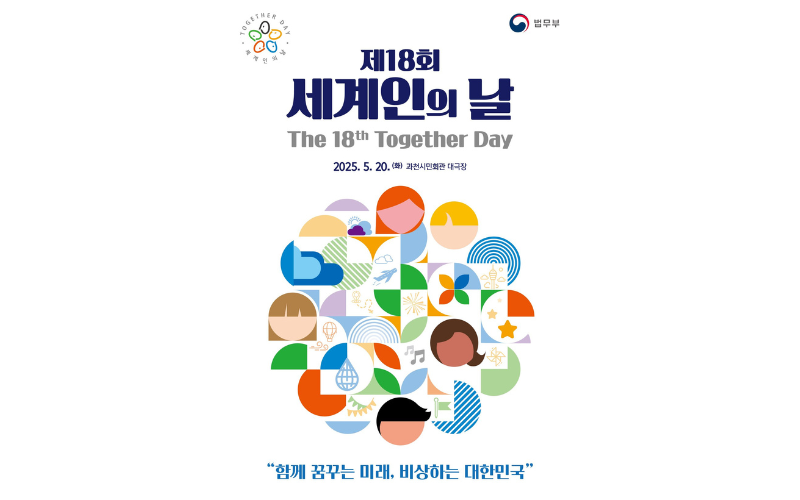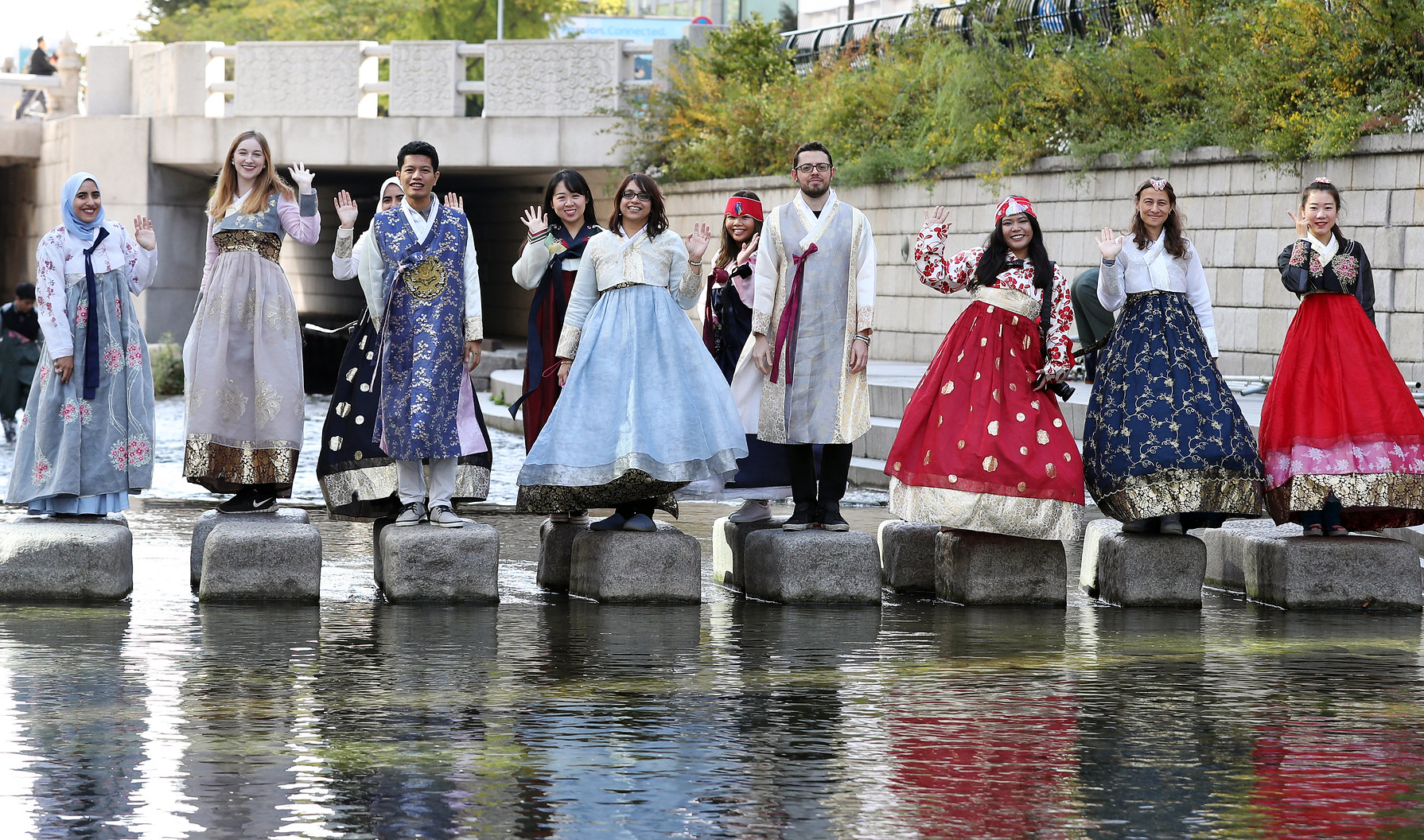May 20 is officially commemorated as "Together Day," organized by the Seoul Metropolitan Government and the Immigration Office of the Ministry of Justice of the Republic of Korea. This celebration aims to highlight and value the country's growing multiculturalism, promoting understanding and harmonious coexistence between Korean citizens and foreign residents.

Origin and History
Known in Korean as 다문화가정의 날 or 다함까의 날 ("Cultural Coexistence Day" or "Together Day"), the event was officially established in 2007 by the Ministry of Justice. Its main objective is to strengthen intercultural ties and foster an inclusive society. According to government reports, the measure responded to the steady growth of the foreign population in Korea and the need to recognize their contributions to the country's social and economic life.
Inspired by international multicultural recognition initiatives, Together Day emerged as an educational and symbolic tool for building a cohesive and pluralistic society. Over time, the event has expanded to various cities across the country with cultural fairs, parades, concerts, workshops, and food-related activities involving both Korean citizens and migrants from around the world, as documented by official platforms such as Korea.net and Seoul Global Center.
Activities and Celebrations
Among the most representative activities are food festivals, artistic performances, cultural workshops, community fairs, and special public services for foreigners such as legal counseling or basic medical checkups. Official platforms such as English Seoul Go Kl and reports from embassies in Korea have documented the active participation of countries like the Philippines, Vietnam, India, Ethiopia, China, and Japan since the event's early editions.
In recent years, there has also been a growing presence of Latin American communities, including Argentina, Mexico, Colombia, Venezuela,and Brazil which have showcased traditional dances, cuisine, and crafts. In an interview with Korea.net, a Brazilian volunteer who took part in the Gwangju edition commented: "I never imagined seeing so many cultures gathered in one place in Korea. It made me feel welcome and proud to share my culture with others."

Sociocultural Significance
Designating a day to celebrate multicultural coexistence helps to strengthen social cohesion and combat prejudice. Cultural exchange fosters empathy, dismantles stereotypes, and enriches mutual understanding. According to institutions like the Academy of Korean Studies, these activities have educational value in promoting more inclusive learning and global citizenship.
Moreover, Together Day represents a space where communities can express their identity and feel like active members of Korean society. The multicultural networks formed during the event often extend beyond the celebration itself, paving the way for community cooperation and mutual respect.
Challenges and Outlook
Despite progress, Korea still faces challenges regarding true inclusion. Many foreign residents encounter language barriers, limited access to public services, and instances of discrimination. As noted by media outlets such as Korea JoongAng Daily and Gwangju News, part of the Korean population views multiculturalism as a threat to national identity, highlighting the need for intercultural education starting in schools.
Nevertheless, celebrations like Together Day act as symbolic bridges toward a more open, diverse, and empathetic society. Recognizing and supporting such initiatives is essential to building a Korea that fully embraces its cultural plurality.
How about this article?
- Like0
- Support0
- Amazing0
- Sad0
- Curious0
- Insightful0


